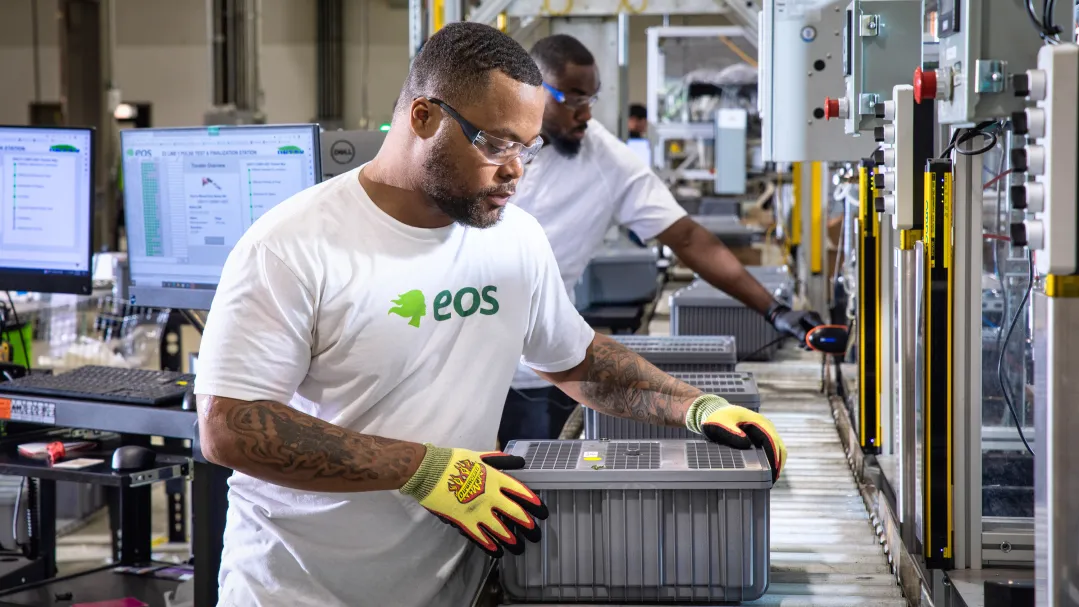Last week, Eos Energy Enterprises received a conditional commitment for a nearly $400 million loan from the Department of Energy’s (DOE’s) Loan Program Office (LPO).
This is the first non-lithium battery technology that has been funded by the DOE’s LPO. This is a huge nod to zinc battery technology and the potential it has in the broader energy storage market.
For more information on the details of this announcement, please view Eos’s press release or MIT Technology Review’s coverage. Both provide excellent details into Eos’s history and how this loan impacts their future activities.
Project AMAZE – American Made Zinc Energy highlights several trends that have been seen within the energy storage industry that Octet hopes to continue.
- Zinc battery technology is proven and ready to scale.
The LPO only funds projects that have “demonstrated transformative potential to accelerate the decarbonization of the U.S. economy”.
Eos Energy is a 15-year-old company that has been perfecting its technology for over a decade. Eos’s Z3 battery is made from available materials that can deliver reliable energy for 20 years without any flammability concerns and low maintenance. Through the due diligence process from the Loan Program’s Office, Eos has proven that this innovative technology can scale on a financially viable path.
There are other zinc battery technologies that are being developed with demonstrations deployed and will soon be approaching the need to scale manufacturing as well. In order to deploy the energy storage needed to reach decarbonization targets, continued support for non-lithium technology is required.
- There is a critical need for Long Duration Energy Storage.
Typically, stationary lithium-ion energy storage systems are deployed to provide 2-4 hours of energy used for grid stability. With the rapid deployment of renewables onto the grid, more flexibility is needed with longer storage times to accommodate this flexibility. This has been highlighted by the department of energy and national labs as part of the Energy Storage Grand Challenge Initiative.
Through this it is seen that zinc battery technology is aptly suited for long duration energy storage with improved economics at longer discharge rates, and the ability to be fully discharged. Eos is a leader in manufacturing and deploying technology for this purpose. The support from the DOE will help increase their manufacturing to fulfill their large order backlog.
- Non-lithium batteries are an opportunity for domestically sourced and manufactured energy storage.
In 2020, the Biden administration launched the Energy Storage Grand Challenge with the desire to “innovate here, make here, and deploy everywhere”.
While lithium-ion battery materials are largely mined overseas, and the battery cells themselves are manufactured elsewhere, zinc battery technologies are largely being made in the US. Eos invented their battery technology here, they are manufacturing all aspects of the battery here, and they have made a robust domestic supply chain for about 85% of their materials.
Through this loan, Eos will see growth in their workforce employing 1000 employees to manufacture their technology in the US.
Why does Octet care?
Octet manufactures small organic molecules to improve performance of aqueous battery technologies. Our technology improves energy density, cycle life, and efficiency of zinc-based battery technologies. More energy per battery means less batteries to manufacture. Longer cycle life means lower levelized cost of storage. Higher efficiency means getting back more of the energy put in. Octet has been supporting these trends since 2018 and will continue to innovate to support the best batteries for the grid.

